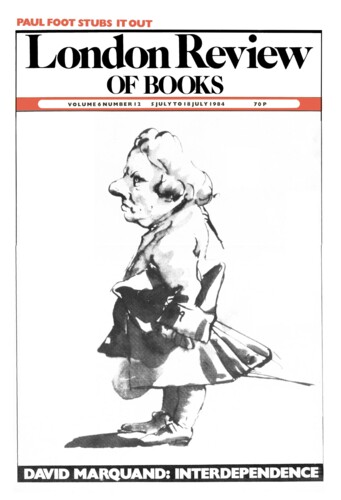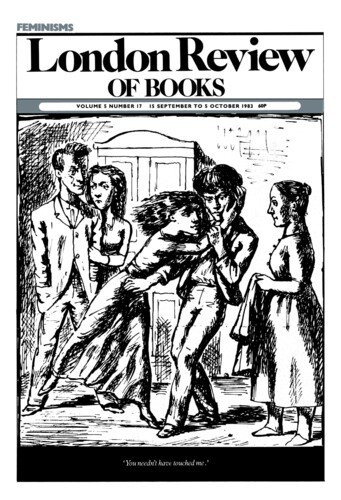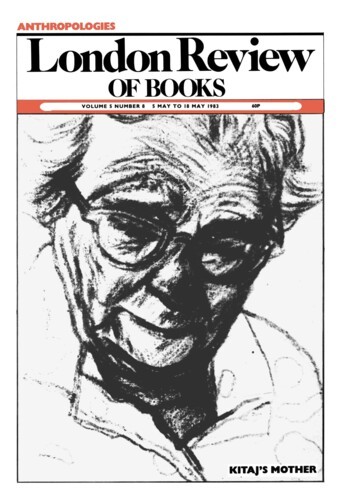Heirs
Maurice Bloch, 5 July 1984
The appearance of a book entitled The Development of the Family and Marriage in Europe, and written by an anthropologist, will not surprise either historians or anthropologists. In the last ten years the two subjects have been paying increasing attention to each other. They have tried to learn each other’s methods, jargon and mannerisms. They have even begun to meddle with each other’s subject-matter. Nonetheless, this publication is a new development, for Goody is dealing with one of the most familiar places and periods of traditional history: Europe from the decline of the Roman Empire to the Reformation.



